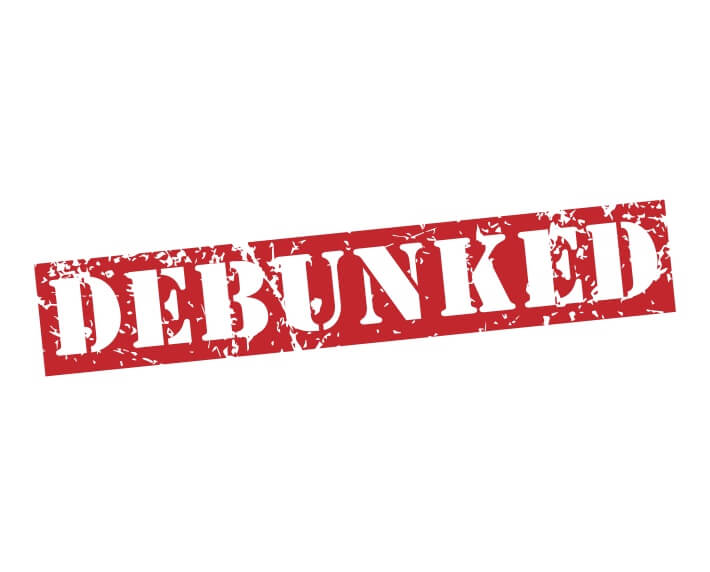Life Insurance For Estate Planning


Reviewed by
Grant Desselle
Licensed Insurance Agent
Life insurance can serve many purposes including, commonly, income replacement for our family if we die early. A life insurance policy can also be a key part of an effective estate planning strategy, both providing cash when needed and shielding assets you intended for your heirs from sizable estate taxes.
If the numbers line up right, or wrong—more accurately, state and federal estate taxes can consume nearly half of the proceeds of a life insurance policy. While the federal estate tax currently exempts up to $5.49 million in estate value, cash-hungry states often start collecting estate taxes on much lower amounts. With so many states implementing an estate tax or an inheritance tax, and sometimes both—and sometimes without meaningful exemption amounts, it makes sense to plan ahead.
One strategy that has been used by some people with varying amounts of success is to buy a life insurance policy to cover the estate taxes and inheritance taxes, where applicable. This way, the assets passed on are passed on at full value without a tax bite diminishing their value or creating payment liabilities.
The reason this strategy sometimes won’t work as well as expected (in this form) is twofold.
First, with a policy owned by the insured, the proceeds of the life insurance policy are added to the estate of the insured, increasing the value of the estate by the benefit amount of the policy. This could be thousands of dollars, or it could be millions of dollars, depending on how much life insurance was purchased. The life insurance policy itself could add to the potential tax liability it was purchased to cover.
Secondly, the amount of an estate that is exempt from estate taxes changes every year. It’s more difficult to hit a moving target.
Counting on exemptions to protect your life insurance proceeds may be an unsafe gamble. In the past 15 years, the federal estate tax exemption amount has fluctuated wildly, ranging from no federal estate tax at all in 2010 to exemptions as low as $1,000,000. Congress can change the exemption amount again—at any time—with the stroke of a pen. Looking at tax changes on a state level, in 2017, half of the states that have an estate tax or inheritance tax made changes to their death taxes.
It’s crucial to understand your estate planning options so you can choose a course of action that best meets your individual needs and protects your family. Creating an estate plan now will help to protect you and your estate while you’re alive—and ultimately—at the time of your death.
Here are the essentials of estate planning and how life insurance can play a valuable role.
Before we learn about life insurance for estate planning, let’s step back for a moment and answer a couple of questions about estates:
Table of Contents
- What Is An Estate?
- What Is Estate Planning?
- Life Insurance For Estate Planning
- So, What’s Your Estate Planning Strategy?
- Irrevocable Life Insurance Trust
- Can I Use an Existing Life Insurance Policy with an Irrevocable Life Insurance Trust (ILIT)?
- How Is An Irrevocable Life Insurance Trust (ILIT) Best Used For Estate Planning?
- Your Life Insurance For Estate Planning
What Is An Estate?
According to Jay Varcoe CPA, MBA, an estate is the net worth of a person at any point in their lifetime, alive or dead. It is the sum of a person’s assets—from the tangible to the intangible. Essentially, it’s everything you own, from a wedding ring to your bank account and everything in between that has value.
To expand on that, an estate will also include any life insurance policies that you own, even though you can’t enjoy the value of that asset.
Because an estate is a measure of net worth, debts are included in the calculation as well for estate tax purposes, possibly reducing the amount subject to estate taxes. However, debt is an important consideration because it can create delays in the probate process or even force the sale of assets intended for heirs.
What Is Estate Planning?
According to InvestingAnswers.com: “Estate planning is the act of preparing for the transfer of a person’s wealth and assets after his or her death. Assets, life insurance, pensions, real estate, cars, personal belongings, and debts are all part of someone’s estate. Estate plans must be written, signed, and notarized by the person who owns the estate.”
The ultimate goal of an estate plan is determined by the client. It can be simple or complex, depending on what the client’s needs are. But there seems to be a sense of confusion and concern when it comes to estate plans—as is sometimes the case with life insurance.
In a Wall Street Journal interview, WSJ editor and reporter Rachel Emma Silverman (who authored “The Wall Street Journal Complete Estate-Planning Guidebook,”) said the biggest mistake people make when it comes to estates is “not having a plan at all, or waiting too long before making major estate-planning decisions.”
Forbes concurred in an investing article, noting that, “In a sense, everyone does have an estate plan; state law makes this point a certainty. It simply may not be the plan that you had in mind, or that your family would have preferred.”
The key takeaways from these finance experts are that everything, every single asset—including the proceeds of your life insurance policy, is considered when determining the value of your estate. Perhaps the most salient point is that if you don’t have an estate plan in place, lawmakers have a plan for your money, and if they don’t a plan yet—give them some time. They’re working on it. With careful estate planning, you may be able to take some or all of your assets out of harm’s way.
Life Insurance For Estate Planning
According to Silverman, life insurance in estate planning isn’t as frightening or complex as it may seem:
“It’s actually a fantastically useful and flexible estate-planning tool that can provide income-tax-free security for your loved ones,” she said. “It can also provide liquidity to pay estate taxes, especially if your estate largely consists of assets such as real estate or a closely held business that you may be reluctant to sell to raise cash.”
Point taken. Life insurance can play an important role in your estate plan, if for no other good reason than to assist your family with their short-term and/or long-term financial needs.
When you die, you can do one of three things with your estate. You can:
- Donate it to a philanthropic organization.
- You can designate certain people to get certain assets.
- You can give it to the government through estate taxes.
Careful estate planning can help to avoid the last option, either in whole or in part, and can help to maximize the amount available that you’d wish to donate or leave to an heir.
The proceeds of a life insurance policy can provide:
- Immediate funds at the time of your death to pay for your funeral and burial costs, your debts, and your final income taxes.
- Money to pay your federal estate taxes (this eliminates the chance of a “forced sale” of your assets to generate needed cash).
- Funds that can be transferred to a trust as part of your will.
- Proceeds to fund a buy-out of your interest in a closely held business, if that applies to you.
- A donation to your favorite charity. Gifts to charity are estate tax-deductible so any money you donate to charity won’t be subject to estate taxes when you die.
Don’t underestimate the importance of immediately available and unencumbered funds—such as the proceeds of a life insurance policy. The passing of a family member or a loved one comes with a parade of expenses, each with a tendency to exceed cost expectations. The average American family saves about 4 percent of its income each year, and even that small amount tends to grow wings. Collectively, we just don’t much cash on hand, with much of our money tied up in investments, 401k accounts, housing, and other illiquid assets—none of which should be sold in a hurry, if avoidable.
Some assets passed in an inheritance come with immediate payment requirements. Homes or cars that aren’t yet paid off can be a liability in the short term, perhaps doing more financial harm than good. Ideally, a life insurance policy will provide enough in proceeds to pay off any remaining debt. If that’s not possible, you’ll want to provide enough to make payments until the home or cars can be sold or until the assets can be repurposed; homes can become rentals.
Your life insurance policy proceeds, payable to a named beneficiary or beneficiaries, can avoid passing through probate—the “document received as the first step in the legal process of administering the estate of a deceased person.” This makes the funds available immediately. Your family won’t have to wait until your estate is settled, which could take six months or more, to get the money they need to pay bills. A tremendous amount of financial damage can happen during the time it takes to settle an estate in probate.
So, What’s Your Estate Planning Strategy?
When it comes to life insurance for estate planning, there are a number of options to consider. Developing a strategy to leave your family and loved ones best prepared and to keep life insurance proceeds safe from estate taxes can be complex or relatively simple, depending on your individual circumstances.
Not having an estate plan at all can have a tremendous cost to heirs or beneficiaries.
Irrevocable Life Insurance Trust
One estate planning strategy that is growing rapidly in popularity and fits many situations well is an Irrevocable Life Insurance Trust.
Like most trusts, an Irrevocable Life Insurance Trust, or ILIT, is simply a holding device. It’s not a separate legal entity like a business. Instead, the trust holds an asset or multiple assets for the benefit of the beneficiary. A Trustee manages the trust, but with an ILIT, management of the trust usually doesn’t require much more than forwarding premium invoices or important correspondence to the insured.
The ILIT owns your life insurance policy for you, removing it from your estate. Because the trust owns the life insurance policy instead of you, the policy is not counted among your assets when the state or federal estate taxes are calculated. Additionally, by owning the policy, the ILIT protects the cash value of the life insurance policy from creditors. In some states, creditors can seize the cash value of a life insurance policy owned by you to satisfy a claim.
Depending on the state you live in and the amount of the federal estate tax exemption, which seems to change every year, the savings realized by sheltering the proceeds of your life insurance policy from estate taxes can be significant. In fact, because estate tax and inheritance tax laws change so often, a trust can seem like the only safe way to ensure the proceeds of your life insurance policy go to whom you intended.
As its name suggests, the ILIT is—you guessed it—irrevocable. That means once you’ve created it and placed an insurance policy inside it, you can’t take the policy back in your own name.
What you can do is closely control many other aspects of it. For example, you can determine who your initial beneficiaries will be and you can define precisely how and under what terms they will receive any benefits. You can also choose the Trustee or Trustees who will manage your ILIT. While with many types of trusts it’s fine for you and your spouse to be the Trustee(s), you’ll want to choose an outside Trustee because otherwise, the IRS could deem that the proceeds of your life insurance policy never left your estate.
An ILIT provides you, your family, and your estate with considerable advantages—like tax-free life insurance proceeds. But these benefits can only be realized if the ILIT is properly designed and specific guidelines are met.
An experienced attorney will help you:
- Name your beneficiaries.
- Name your Trustees. Your Trustee will receive correspondences regarding the trust, responding or taking action, if needed, even if you are the one paying the premiums.
- Lay out the circumstances in which you’ll want your beneficiaries to receive money from the ILIT.
- Understand the rules of an ILIT in your state.
Before purchasing a life insurance policy, consult with an attorney regarding your potential income and estate tax consequences. If your estate is large enough, it could be subject to federal and state estate taxes, depending on what applicable law is in place at the time of your death.
You’ll also want to have your ILIT in place before binding the policy. An ILIT is a fairly simple trust but it will still require some time to set it up properly.
Can I Use an Existing Life Insurance Policy with an Irrevocable Life Insurance Trust (ILIT)?
It is possible to gift an existing life insurance policy to an ILIT, but if the insured dies within three years of making the gift to the ILIT, the amount of the policy can be included in the estate for tax purposes. This doesn’t make the policy proceeds taxable. It adds the policy proceeds amount to the total value of the estate, which may then make part of the estate subject to estate taxes. Currently, federal estate taxes offer an exemption of up to $5.49 million, although this exemption amount changes frequently and state estate taxes may apply at much lower amounts.
If the ILIT is funded through the purchase of a new policy, the three-year rule does not apply. This is commonly called a “lookback period” and exists in other scenarios as well. When the ILIT is the owner of the life insurance policy from day one of the policy, the lookback period isn’t a concern and the proceeds of the policy will not be included in the estate even if the insured dies immediately after purchasing the policy held in the ILIT.
There are situations where purchasing a policy within an ILIT may not be practical or at least would merit additional scrutiny before buying a new policy. If you’ve had a sizable life insurance policy in place for many years and are concerned that your health or age might make an equivalent policy price-prohibitive, discuss your situation with your agent and/or advisor. Your agent can run current quotes and discuss your options. Life insurance rates have come down considerably in recent years and it may make sense to replace the policy. In that case, an ILIT can provide effective protection for the proceeds of the policy.
How Is An Irrevocable Life Insurance Trust (ILIT) Best Used For Estate Planning?
If you have other assets you wish to place into a trust, a separate trust designed for those assets is in order. An ILIT is specifically designed to hold life insurance policies and is built to meet specific guidelines.
For married couples, an ILIT is often used with Second to Die life insurance policy, also known as a Survivorship policy. Estate taxes would not apply to a surviving spouse, but estate taxes would apply when the surviving spouse also passes—assuming that the estate value is higher than the state or federal thresholds for exemptions. A Second to Die policy is a policy for two people (usually married) which only provides benefits to the beneficiaries upon the death of the second person, the spouse or partner.
Using an ILIT with a Second to Die life insurance policy keeps the proceeds of the life insurance policy out of the estate and safe from estate taxes. Single people can also realize the benefits of an ILIT with an individual policy—keeping 100 percent of the proceeds from the policy available your beneficiary.
Whether a single-person policy or a Second to Die policy, you’ll have some options for policy types, meaning you can choose between several variations of permanent life insurance for your ILIT, including standard whole life, universal life, and variable life insurance. Be aware that all of these options can generate cash value which may be taxable in the trust. An ILIT does require a tax return, even if the trust had no taxable income. An experienced agent can walk you through the various options for permanent life insurance and help you to understand the differences and benefits of each type of life insurance policy.
Your Life Insurance For Estate Planning
When you are ready to talk about purchasing life insurance, keep this in mind. As a rule of thumb, you will want to make sure to purchase enough life insurance to cover all the potential costs of settling your estate and to ensure that the assets you leave to your family aren’t less than you intended.
See what you qualify for by answering some health questions.









